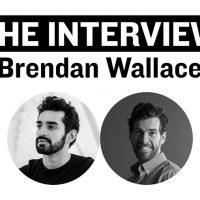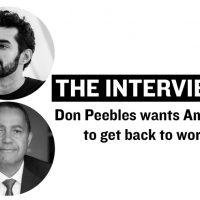Cheat sheet
(0:57: I: The end of office as a boring asset)
(3:47: II: The future of work)
(15:10: III: Owner vs. operator)
(28:30 IV: Space as a service)
“Greed” was good on Gordon Gekko’s Wall Street. “Boring” was good in the office market in alpha cities such as New York and London – A fully-occupied Class-A office building was about as stable an asset as you could find in real estate, and its predictable cash flows attracted pension funds and institutional investors from across the globe. But the office market is no longer boring, and that should be a wake-up call for major landlords, according to two prominent proptech strategists.
Dror Poleg, the author of “Rethinking Real Estate” and his business partner Antony Slumbers joined The Real Deal’s Hiten Samtani for a deep dive into the future of the office market. The conversation touched upon several of the biggest issues facing office landlords at the moment: how to account for a large chunk of the population opting to work from home even once this pandemic is past; how to value and finance office buildings in the face of less predictable cash flows; and how to market space in the age of social distancing.
“Companies shouldn’t ask themselves ‘can my employee be productive outside of the office?’ Poleg said. “They should ask themselves, ‘If I take the $15,000 or so that I spend putting their butt in a seat, and spend that on making them productive, including them giving a budget for satellite spaces or flex spaces, what will happen then?’ ”
Samtani said the upheaval triggered by mass working from home had made it much trickier to calculate demand for office space.
“The whole mantra of the office market,” Slumbers said, “is going to change from trying to let [lease] the most space for the most time to someone, to actually trying to let the least space for the least time, and charge someone appropriately for that flexibility.”
Watch more great conversations with industry leaders




Both Slumbers and Poleg said that the role of the office space operator would become more and more distinct from that of the owner, more along the lines of what we see in the hotel industry. Consumer-facing providers who could guarantee a health and safety-focused, optimized tenant experience would grow in importance and would be the biggest value driver of buildings. WeWork was a financial debacle, Poleg acknowledged, but it certainly showed the demand for that kind of product and tenant experience.
In his latest chairman’s letter, Vornado Realty Trust’s Steven Roth had suggested that the big landlords band together and come up with their own co-working brand. But Poleg scoffed at that idea.
“Practically it will be very tough,” he said. “If you look at all the New York landlords, they’re all next to each other. Who decides where they go first, and where they go second?”
Poleg wasn’t done: “When the chairman of a large office landlord says something like, ‘why can’t we all join forces and create some kind of operating company for flex office?’ it shows a deep reluctance to comprehend the scope of the change in the industry,” he said. “You’re basically thinking about it like a coffee shop in your building — it basically means you don’t understand that this is your new core business — it’s not a little thing you’re doing on the side.”
(Poleg and Slumbers are offering TRD readers a 33% discount for their “future-proof office” course. Use the coupon code: TRD)
Write to Hiten at hs@therealdeal.com